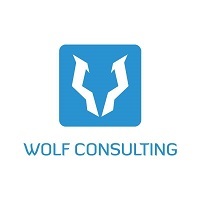Yes, Salesforce Partner can be accessed on a variety of devices and platforms. The platform is responsive and user-friendly, and it can be accessed from PCs, laptops, tablets, and smartphones. The Salesforce Partner app is also available for Android and iOS devices, making it easy for partners to manage their business while on the move. It is also accessible through a variety of web browsers, including Chrome, Firefox, and Safari, catering to a wide range of preferences.
List of 20 Best Salesforce Partner
Fionta is a leading Salesforce partner dedicated to empowering businesses with essential cloud-based applications. Our full range of support services, from consulting and concept development to implementation and integration, facilitates your organiz...Read More Fionta
Itransition is a trusted Salesforce partner, offering premium services to help businesses optimize their sales strategy and effectively manage cross-channel marketing campaigns. Our expertise in Salesforce enables us to streamline processes and drive...Read More Itransition
Choose Ascendix as your go-to Salesforce partner for exceptional services. Our team has extensive expertise and experience in seamless implementation, customization, multi-site deployment, and migration for Salesforce. Trust us to provide the best so...Read More Ascendix
Offprem is your ultimate partner for all things Salesforce. We are certified experts, offering a wide range of services including implementation, administration, migration, and customization. Put your trust in our expertise and let us handle the tech...Read More Offprem
Rackspace, a leading provider of AWS cloud services, empowers businesses to unlock the full potential of the Amazon Web Services Platform. As a trusted partner, they offer reliable support for critical applications, helping companies confidently thri...Read More Rackspace
Valtech is a partner of Adobe, specializing in the Adobe Marketing suite. Our team of Adobe experts has a track record of 180 successful projects, ready to create a personalized Adobe cloud solution for your business. Tap into Adobes robust tools and...Read More Valtech
Zoho is the backbone of our services at Wolf Consulting. We are a top-rated partner of Zoho, offering cutting-edge solutions to businesses across various sectors. Our range of services encompasses the use of key Zoho product suite such as Zoho CRM, Z...Read More Wolf Consulting
Affirma is a software designed to help businesses overcome various challenges and achieve their goals. Our team of experts and efficient processes are dedicated to optimizing business operations and increasing productivity. Expect improved efficiency...Read More Affirma
Arkus is your top choice for consolidating and optimizing data across your organization. Our Salesforce suite offers tailored solutions, tailored to your unique business requirements. Our seamless integration process ensures efficient data management...Read More Arkus
Sercante is a marketing solution that streamlines your strategies for optimal results. Our highly skilled team and vast expertise can boost your sales and maximize ROI. Say farewell to uncertainty and hello to a successful marketing approach with Ser...Read More Sercante
DEG Digital, a trusted partner of Salesforce, is renowned for delivering cutting-edge solutions. By leveraging the power of Salesforce, they offer bespoke solutions that drive business growth. With their unmatched expertise in blending technology and...Read More DEG Digital
OpenTent solution for businesses seeking to modernize their sales approach and drive growth in todays interconnected and standardized market. Our cutting-edge platform helps streamline the sales process, empowering organizations to excel in the ever-...Read More OpenTent
Solunus is a leading software consulting firm that specializes in leveraging cutting-edge tools and technologies to boost your businesss potential. Our services range from implementing new solutions to seamlessly migrating your existing systems. With...Read More Solunus
Mindtree is a leading provider of cutting-edge IT services that enable businesses to thrive, lower costs, and generate additional revenue streams. Our expertise lies in crafting, planning, and executing advanced systems that propel growth and optimiz...Read More Mindtree
4c - software designed to streamline complex tasks and boost productivity for users. With its user-friendly interface and cutting-edge features, navigating through intricate processes has never been easier. Professionals across all industries can sav...Read More 4c
IT Edge, an official partner of Salesforce, provides top-notch services for seamless integration of Salesforce into your company. Our team of certified professionals excels in tailoring solutions to meet your unique business goals. Trust us to tap in...Read More IT Edge
At CloudMasonry, we provide a complete range of Salesforce services, from consulting to implementation and customization. Our cloud-based solutions seamlessly integrate with your existing ecosystem, ensuring a seamless experience. With a focus on del...Read More CloudMasonry
Emorphis is a leading software solution provider, led by a team of highly skilled professionals who are committed to driving growth. Our innovative products and services are designed to exceed the demands of businesses and bring significant value to...Read More Emorphis
Unlock the full potential of Salesforce with Simplus. Our advanced implementation and customization services will optimize your business platform, delivering maximum ROI. Our trusted partnership with Salesforce simplifies your journey and unlocks pre...Read More Simplus
Fexle is a trusted and experienced Salesforce partner that offers comprehensive solutions using advanced Salesforce technologies. Our team of highly skilled Salesforce developers utilize their expertise in tools like Salesforce Lightning and Force to...Read More Fexle
Learn More About Salesforce Partner
- What Is Salesforce Partner?
- What Are The Recent Trends In Salesforce Partner?
- Benefits Of Using Salesforce Partner
- Important Factors To Consider While Purchasing Salesforce Partner?
- What Are The Key Features To Look For In Salesforce Partner?
- Why Do Businesses Need Salesforce Partner?
- How Much Time Is Required To Implement Salesforce Partner?
- What Is The Level Of Customization Available In Salesforce Partner?
- Which Industries Can Benefit The Most From Salesforce Partner?
- Conclusion
What Is Salesforce Partner?
Salesforce Partners are companies or organizations that have been formally recognized and authorized by Salesforce to offer services and solutions for their popular customer relationship management (CRM) software. These partners have a thorough understanding of Salesforce products and are professionals in assisting businesses with the implementation and optimization of technology to meet their objectives.
Salesforce partners provide a variety of services, including advice, implementation, customization, training, and continuing support. They can collaborate with organizations of all sizes and sectors to build and implement a Salesforce solution that is tailored to their specific requirements and goals. Partner status is only offered to firms who meet stringent requirements and go through extensive training and certification processes.
This ensures that Salesforce partners are highly competent and knowledgeable about the platform, and can provide high-quality services to their clients. Working with a Salesforce partner can provide various benefits to businesses, such as access to specialized expertise, quicker deployment processes, and continuing support and direction on how to use Salesforce efficiently.
They may assist firms in making the most of their Salesforce investment and achieving their goals more quickly and effectively. When selecting a Salesforce partner, you should examine their level of knowledge, industry experience, and reputation. Reading reviews and case studies might provide useful information about their previous performance and client satisfaction. An ideal partner should also have a thorough awareness of your company's needs and be able to develop customized solutions to satisfy them.
What Are The Recent Trends In Salesforce Partner?
Salesforce Partner Trends: For more than 20 years, Salesforce has been the market leader in cloud-based customer relationship management (CRM) systems. Salesforce partners are in high demand due to the company's ever-expanding customer base. These partners are specialized consulting organizations that work with businesses of all sizes to deploy and optimize Salesforce solutions. As the Salesforce ecosystem evolves, buyers must stay up to date on current Salesforce partner trends in order to make informed decisions and select the best partner for their organization's needs.
1. Industry-Specific Expertise: Demand for industry-specific solutions has been increasing, and Salesforce partners are no exception. Buyers are increasingly looking for partners with sector experience and expertise, such as in healthcare, finance, or retail. This not only guarantees that the partner understands the buyer's industry requirements, but it also aids in the successful deployment and modification of Salesforce solutions.
2. Intelligent Automation: Automation has become a buzzword in the IT world, and Salesforce partners are adopting it in their products. Partners use artificial intelligence and machine learning to automate processes, reduce manual tasks, and improve overall Salesforce installation efficiency. This trend is likely to continue as buyers seek partners that can help them fully utilize Salesforce's automation capabilities.
3. Mobile-First Strategy: As mobile device usage grows, Salesforce partners are adopting a mobile-first approach to their offerings. They are creating mobile-optimized applications and interfaces that will allow users to access Salesforce while on the go. This development is especially important for firms with a scattered workforce, as employees must use Salesforce from their mobile devices.
4. Collaborative Partnerships: Previously, Salesforce partners worked individually on installations. However, the trend is changing toward collaborative partnerships, in which partners collaborate with other consulting companies, system integrators, and third-party vendors to provide full solutions. This streamlines the installation process and improves the buyer's overall experience.
5. Data Analytics And Reporting: Organizations are increasingly relying on data analytics and reporting to make sound decisions. Salesforce partners now provide enhanced analytics and reporting tools to help customers acquire important insights from their Salesforce data. This trend is critical for firms that work with big amounts of data and must make data-driven decisions.
6. The Rise Of Small And Mid-Sized Partners: While established consulting firms have traditionally dominated the Salesforce partner ecosystem, there is a growing trend of small and mid-sized partners. These partners provide specialized services at cheaper costs, making Salesforce solutions more affordable for organizations of all sizes. This trend is projected to continue as more corporations recognize the benefits of collaborating with smaller partners.
Benefits Of Using Salesforce Partner
Salesforce is a well-known customer relationship management (CRM) software that enables businesses to manage sales, marketing, and customer care processes from a single platform. However, deploying Salesforce may be a complex and time-consuming operation, therefore many firms choose to work with a certified Salesforce Partner.
Let's explore, we'll go over the benefits of working with a Salesforce Partner and how they can help your organization succeed with Salesforce.
1. Expertise And Knowledge: Salesforce Partners are certified experts with substantial Salesforce experience and knowledge. They go through extensive training and certification processes to become Salesforce experts in implementation, customization, and integration. Working with a Salesforce Partner ensures that your organization is in the hands of qualified individuals who can deliver the finest solutions for your specific requirements.
2. Tailored And Customized Solutions: Salesforce Partners collaborate with businesses to understand their specific needs and modify the Salesforce platform accordingly. They have the knowledge to tailor Salesforce to your specific business processes and procedures, enabling a seamless and effective transition. This targeted strategy enables firms to make the most of their Salesforce investment and achieve their objectives.
3. Time And Cost Savings: Setting up Salesforce on your own may be a time-consuming and costly procedure. Salesforce Partners can help you save both time and money by optimizing the deployment process and offering cost-effective solutions. They also provide continuing support and maintenance, which eliminates the need to hire an in-house Salesforce team.
4. Seamless Integrations: Salesforce Partners have successfully integrated Salesforce with a variety of third-party programs, including marketing automation tools, e-commerce platforms, and accounting software. This enables organizations to connect all of their systems and have a comprehensive view of their consumer data, increasing overall efficiency and decision-making.
5. Training And Support: Implementing Salesforce is only the first step; organizations must also train their workers to use the platform properly. Salesforce Partners offer extensive training programs for employees at all levels, guaranteeing a smooth transition to the platform. They also provide continuing support and guidance to help businesses get the most out of Salesforce.
6. Access To Latest Features And Updates: Salesforce publishes updates and new features on a regular basis to improve the functionality of its platform. Working with a Salesforce Partner allows organizations to stay up to date on the latest features while also receiving expert guidance on how to use them to improve their operations and achieve their objectives.
Important Factors To Consider While Purchasing Salesforce Partner?
When considering purchasing a Salesforce Partner, there are a few key considerations.
This buyer's guide will highlight critical elements to assist you make an informed decision and select the best partner for your company requirements.
1. Expertise: One of the most important factors to consider when choosing a Salesforce Partner is their level of expertise. Choose partners who have substantial experience dealing with Salesforce and its numerous products. A partner with a track record of successful implementations and delighted clients is more likely to provide a positive and meaningful experience for your company.
2. Services Offered: Evaluate the services provided by the partner and ensure that they meet your company's requirements. Some partners may focus on CRM, while others provide a broader range of services including as consultation, development, and training. Consider the size and complexity of your organization and select a partner who can give the appropriate amount of help.
3. Industry Experience: Industry experience is an important thing to consider. A partner who has worked with companies in your industry will have a greater knowledge of your unique requirements and issues. They can also provide key insights and best practices from similar firms to assist increase the success of your Salesforce deployment.
4. Support And Maintenance: After the first implementation, you must have ongoing support and maintenance from your partner. Make sure to ask about the degree of support they provide, such as technical assistance, issue patches, and upgrades. A reputable partner should also conduct regular check-ins to ensure that your Salesforce system is functioning properly.
5. Integration Capabilities: If you already use other software or systems in your firm, you should investigate a partner's integration capabilities. Your Salesforce Partner should be able to effortlessly combine your current technologies with Salesforce, resulting in a more complete and effective solution.
6. Reputation And Client References: Before making a selection, look into the partner's reputation and read any client references or case studies. Look for partners with excellent reviews and a strong reputation in the business. This will increase your trust in their expertise and commitment to providing superior services.
7. Cost: Of course, cost is an important consideration when acquiring any product or service. Make sure you understand the partner's pricing structure and which services are included. Be wary of partners who offer inexpensive prices but lack the experience and resources to ensure a successful implementation.
What Are The Key Features To Look For In Salesforce Partner?
When selecting a Salesforce Partner, there are a few crucial qualities to check for to guarantee that you are making the best option for your company.
These features can assist you in finding a partner who will not only fulfill your immediate demands, but will also give long-term benefits to your Salesforce deployment and success.
1. professional And Experienced Consultants: A credible Salesforce Partner should have a team of professional and experienced Salesforce solution specialists. These consultants should come from a variety of backgrounds and have certifications in various Salesforce products, demonstrating that they have the abilities to provide high-quality services.
2. Proven Track Record: Before selecting a Salesforce Partner, it is critical to request references and case studies from past clients. This will offer you an indication of their experience, success record, and project management style. A partner with a track record of successful implementations and delighted clients is more likely to get the results you seek.
3. Industry-Specific Knowledge: Every organization has distinct requirements and challenges, and a smart Salesforce Partner knows this. Look for a partner who has previously worked with clients in your business or a similar one. This means they'll have a better understanding of your business processes and can customize Salesforce solutions to meet your specific requirements.
4. Comprehensive Service Offerings: A reputable Salesforce Partner should provide comprehensive service offerings that encompass all areas of the Salesforce platform. This comprises implementation, modification, integration, training, support, and long-term maintenance. This means that they can help you throughout your Salesforce experience, from initial setup to ongoing support and maintenance.
5. Strong Communication And Teamwork Skills: Effective communication and teamwork are essential for any successful partnership. Look for a partner who values open communication, keeps you informed on the status of your project, and involves you in decision-making. This will guarantee that your implementation is on track and meets your expectations.
6. Responsiveness And Availability: Salesforce is a crucial component of your organization, and any downtime or system issues can have serious consequences. As a result, it is critical to select a partner who provides prompt and effective help to address any concerns that may occur. Look for partners who provide round-the-clock support and a dedicated crew to handle emergencies.
Why Do Businesses Need Salesforce Partner?
As businesses increasingly use Salesforce as their primary customer relationship management (CRM) system, the necessity for a dependable and skilled Salesforce partner becomes critical. In reality, working with a certified Salesforce partner can make a significant impact in the success and effectiveness of a company's Salesforce implementation. Here's why.
1. Expertise And Experience: Salesforce partners are qualified professionals with extensive training and experience integrating and customizing the Salesforce platform. They are not only proficient in the technical parts of Salesforce, but they also understand the business procedures and best practices related with it. This knowledge and experience can save companies time, money, and frustration.
2. Tailored Solutions: Each organization is unique, and so are its Salesforce requirements. A Salesforce partner will collaborate closely with the company to understand their specific needs and create tailored solutions that correspond with their objectives. This bespoke strategy guarantees that organizations get the most of their Salesforce investment and achieve the required results.
3. Seamless Implementation: Salesforce implementation can be a difficult and technical process that involves careful planning, data migration, and interaction with current systems. A Salesforce partner can handle all of these responsibilities flawlessly, resulting in a smooth and effective implementation. This enables firms to swiftly embrace Salesforce and begin reaping the benefits.
4. Ongoing Support: A Salesforce partner does not simply disappear after the implementation. They offer continuing support and maintenance services to guarantee that the Salesforce system runs effectively and meets the changing needs of the organization. This allows businesses to stay up to speed on the newest Salesforce features and updates without disrupting their operations.
5. Cost-Effectiveness: Hiring an in-house staff of Salesforce professionals may be a considerable expenditure for firms, particularly small and medium-sized enterprises. On the other side, hiring a Salesforce partner is a more cost-effective choice because businesses just pay for the services they require, with no overhead expenditures.
How Much Time Is Required To Implement Salesforce Partner?
The time necessary to adopt Salesforce Partner varies depending on a number of factors, including the complexity of your business processes, the size of your organization, and the degree of customization required. Typically, it can take anywhere from a few weeks to several months. To receive a more accurate estimate of the installation timeline, speak with a Salesforce Partner and discuss your specific business requirements.
They can generate a detailed project plan and timeframe depending on your specifications. The implementation process normally consists of numerous steps, including discovery, design, development, testing, and deployment. During the discovery phase, the Salesforce Partner will examine your business processes, sketch out your requirements, and identify any potential issues.
During the design process, they will construct a customized solution to fit your specific company requirements. This could entail setting Salesforce functionality, creating bespoke applications, and interacting with other systems. Once the design is complete, the Salesforce Partner will begin building and configuring the solution. This is followed by extensive testing to ensure that everything works as expected.
Finally, the solution will be implemented in your firm, and the Salesforce Partner will give training and support to guarantee a smooth transition. Overall, the time necessary to integrate Salesforce Partner will be determined by the complexity of your requirements and the experience of your chosen partner. With careful preparation and teamwork, your business can reap the benefits of Salesforce Partner in a timely and effective manner.
What Is The Level Of Customization Available In Salesforce Partner?
When it comes to customization, Salesforce Partner provides a variety of alternatives for organizations to personalize their experience to their own needs and requirements. Salesforce Partner provides practically endless customization options, ranging from custom fields and objects to custom workflows and automations. One of the primary things that distinguishes Salesforce Partner is its strong and user-friendly platform, Salesforce Lightning.
Lightning allows businesses to effortlessly construct unique websites and applications that are tailored to their individual business processes and goals. This not only improves efficiency, but also gives users a more tailored and streamlined experience. Salesforce Partner, in addition to Lightning, provides a number of tools and features that enable further in-depth customisation.
This includes the Salesforce AppExchange, which provides a wide library of pre-built apps and integrations that can be seamlessly integrated into an organization's existing operations. This reduces the need for enterprises to create and manage custom solutions from scratch, saving time and resources. Furthermore, Salesforce Partner provides a powerful API that enables enterprises to interface with third-party applications and systems.
This enables seamless data flow and communication between disparate systems, resulting in a more integrated and personalized experience for users. Overall, the customization options in Salesforce Partner are vast and flexible. It enables firms to adapt to shifting needs and market trends, making it an excellent solution for those seeking to stay ahead of the competition. Salesforce Partner, with its user-friendly interface, extensive library of tools and features, and seamless connection capabilities, provides a highly customized solution for organizations of all sizes and sectors.
Which Industries Can Benefit The Most From Salesforce Partner?
Salesforce is a popular customer relationship management (CRM) software used by enterprises of all sizes and sectors. To effectively harness Salesforce's capability, many businesses turn to Salesforce Partners. These certified specialists offer specific services, adaptations, and integrations for the Salesforce platform. Selecting the correct Salesforce Partner can significantly improve a company's overall experience and success with Salesforce. But which sectors will gain the most from partnering with a Salesforce Partner? The truth is, every sector may profit from collaborating with Salesforce specialists. However, other industries may experience a greater impact due to the unique issues and needs they confront.
Let's take a closer look at which industries will gain the most from Salesforce Partners.
1. Healthcare: In the fast-paced and tightly regulated healthcare industry, managing patient data and boosting communication are critical. Salesforce Partners can adapt the platform to fit healthcare providers' specific needs, such as HIPAA compliance and secure patient portals. They can also link Salesforce with other healthcare platforms, allowing for more efficient data sharing and better patient care.
2. Financial Services: The financial services business requires advanced CRM solutions to manage client interactions, track investments, and expedite procedures. Salesforce Partners may assist financial organizations with customizing Salesforce to match their complicated requirements and integrating it with other critical systems such as accounting and trading platforms. This leads in a more effective and streamlined business, which improves client happiness and income.
3. Manufacturing: In the competitive manufacturing business, time and cost savings are key to success. Salesforce partners can help manufacturers automate processes and link teams to improve collaboration and productivity. In addition, the platform can maintain inventories, manage orders, and analyze data to help users make better decisions. As a result, manufacturers can streamline operations, save money, and increase overall efficiency.
4. Nonprofit: Nonprofit organizations face particular problems in managing their connections with donors, volunteers, and beneficiaries. Salesforce Partners can customize the platform to meet the specific needs of charitable organizations, such as donor management, volunteer tracking, and program administration. This can improve communication and interaction with stakeholders, resulting in improved funding and support for the organization's mission.
5. Retail & E-commerce: In the rapidly expanding and competitive retail and e-commerce industries, providing a great customer experience is critical to success. Salesforce Partners may assist businesses in tailoring the platform to provide personalized shopping experiences, track consumer preferences, and manage orders and inventories. This improves client loyalty, contentment, and, eventually, sales.
Conclusion
Finally, selecting the correct Salesforce Partner for your firm is critical to a successful Salesforce implementation. After conducting extensive research and evaluation, it is critical to consider the partner's knowledge, experience, and industry reputation. Examine the partner's abilities and certifications to ensure that they have the essential knowledge to implement and customize Salesforce to meet your company's demands.
Their previous expertise with similar projects and sectors might also influence their capacity to comprehend your specific needs and offer high-quality outcomes. Consider the partner's reputation and customer satisfaction scores to gain an understanding of their professionalism, communication skills, and general performance. Reading reviews and conversing with previous clients will help you understand their strengths and flaws.
It is also critical to have a good working relationship with your chosen partner to enable a smooth and effective implementation process. Communication, trust, and teamwork are essential components for a successful partnership. Finally, the perfect Salesforce Partner should not only have technical expertise, but also share your company's aims and values. Taking all of these criteria into account will lead you to a dependable and strategic partner who can make your Salesforce vision a reality. With the appropriate partner, your organization can maximize Salesforce's potential and generate business success.
Salesforce Partner FAQ's
Can Salesforce Partner Be Accessed Across Multiple Devices And Platforms?
Is Salesforce Partner Future-Proof And Adaptable To Emerging Technologies Like AI, Blockchain Or IoT?
As a Salesforce Partner, you can be confident that your organization will be future-proof and adaptable to emerging technologies like AI, blockchain, and IoT. Salesforce is continually inventing and implementing new technologies into its platform, allowing partners to stay ahead of the competition.
With Salesforce's robust cloud-based infrastructure and extensive customization options, your company can simply integrate these technologies to improve operations and remain competitive in the market.
Is There A Free Trial Offered To Assess Salesforce Partner Before Committing?
Yes, there is a free trial to evaluate Salesforce Partner. You can sign up for a free trial of the Salesforce Partner program to learn more about its features and benefits before making a commitment. To get started, simply visit the Salesforce website and click the "Free Trial" option. This will allow you to determine whether Salesforce Partner is a good fit for your business needs.
Does Salesforce Partner Offer Data Security Features And Meet Regulatory Compliance Standards?
Yes, Salesforce Partner provides powerful data security measures to protect and secure customer data. These include encryption, user authentication, blocklisting, and others. Furthermore, Salesforce undertakes independent audits on a regular basis and adheres to regulatory compliance requirements like as GDPR, HIPAA, and ISO 27001. This ensures that your data is secure and follows industry requirements.
Can Salesforce Partner Integrate Seamlessly With Existing Tools And Platforms?
Yes, Salesforce Partner integrates seamlessly with existing tools and platforms. They offer a variety of connectivity options, including pre-built connectors, APIs, and middleware, to ensure a seamless and quick integration process.
Salesforce also provides substantial documentation and support to enable partners smoothly integrate their solutions with the Salesforce platform. This enables businesses to use their existing tools and platforms while simultaneously growing their capabilities with Salesforce.






















